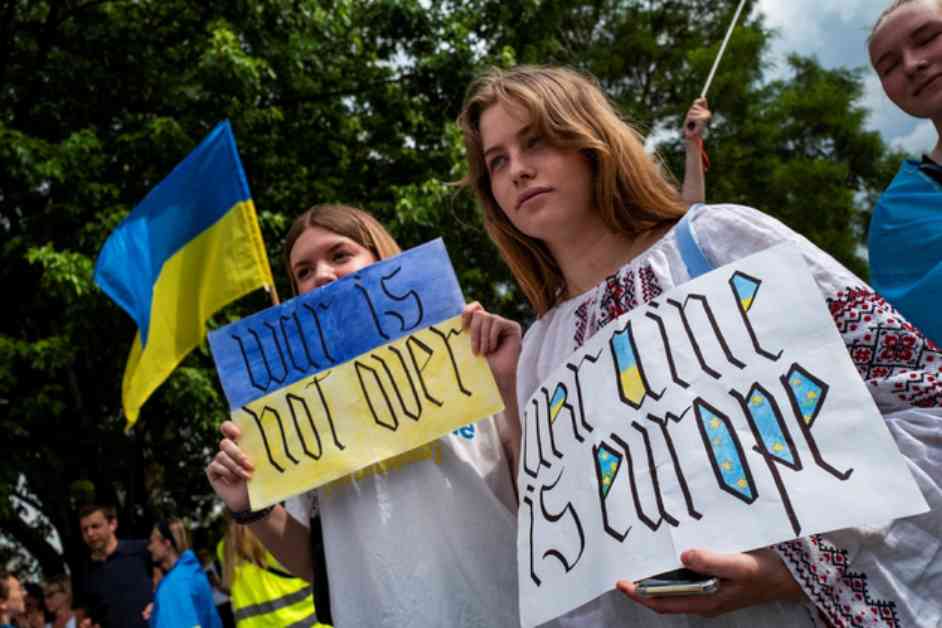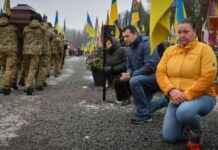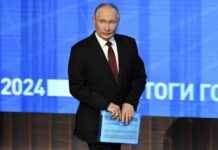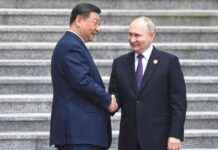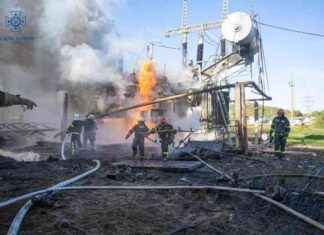Peace agreements that include women is 35% more likely to endure for at least 15 years — a compelling statistic that underscores why gender equality in peacebuilding is not just a moral issue, but a strategic one. After the UN Security Council’s landmark adoption of Resolution 1325 on Women, Peace and Security in 2000 – a cornerstone in including gender in peace and security efforts – research into women’s impact on peacebuilding has gradually increased. JOIN US ON TELEGRAMFollow our coverage of the war on the @Kyivpost_official. Today, the body of literature on this subject demonstrates that women’s participation has a significant impact, be it in negotiations or in post-conflict law-making. The “Guidance On Gender and Inclusive Mediation Strategy,” which was prepared by the UN Department of Political Affairs, argues that women’s participation in peace processes can strengthen those processes’ legitimacy, contribute to sustainable peace, and generate proposals that are both more comprehensive and better targeted for conflict resolution. The UN found that mediation approaches that consistently involve women and civil society are more likely to foster widespread national ownership – contributing to a peace that is more enduring. The Guidance concluded that: • Women’s involvement can broaden the spectrum of local stakeholders, enhancing legitimacy and credibility. • Women’s viewpoints can offer a unique perspective of a conflict’s origins and impacts, thus fostering more comprehensive and targeted recommendations for resolving it. • Peace accords that address the unique needs of women and girls, as well as men and boys, help foster lasting peace. And vice versa, peace agreements that are gender-blind have proven to be detrimental to the security and peacebuilding needs of women. After reviewing official records of peace negotiation processes, Laurel Stone, a researcher on conflict management, genocide prevention, and women’s security, concluded that encouraging women’s participation in peace negotiations increases the probability of violence ending within a year by 24%. Research also shows that involving women contributes both to the likelihood of reaching a peace agreement and then to its successful implementation. Furthermore, more inclusive peace processes with more extensive female engagement are more likely to be durable over time. A 2015 study of 182 signed peace agreements over two decades measured women’s participation in peace agreements and showed that these agreements were 35% more likely to last at least 15 years when women were involved. Positive impact goes even further than that – there is a clear relationship between women signatories and the durability of peace. Last but not least, peace agreements signed by women include a higher number of agreement provisions and a higher rate of provision implementation 10 years after the agreement compared to those not signed by women. Political Science Professor Mary Caprioli demonstrated a connection between certain gender equality indicators and a country’s propensity for peacefulness – there is statistical evidence suggesting that countries scoring high on women’s rights criteria are more immune to international and internal wars. Stone’s research shows that implementing gender quotas for national legislatures can increase the probability of violence ending within five years by 27%. Thus, it’s not surprising that durable peace is generally more likely in countries with higher levels of gender equality that allow for women’s political participation. However, research shows that the connection between women’s security, the political participation of women, and durable peace also works in the opposite direction – gender inequality is a strong predictor of armed conflict. Indeed, excluding women from peace talks contributes to their political disempowerment, diminishes opportunities for political reform and the effective implementation of peace agreements, ultimately weakening the sustainability of peace. Women at the local level can also play particularly important roles as network creators or mediators in situations in which other actors are either not welcome or refrain from venturing. In general, the inclusion of women is likely to increase ownership over peace processes within local communities. Although there is much to be done to further strengthen women’s participation in peace and security processes, there are, nonetheless, numerous examples of successful practices. In her “Mediating in a Complex World,” Teresa Whitfield, Director of the Policy and Mediation Division at the United Nations (UN) Department of Political and Peacebuilding Affairs, showed that in the early 2000s, mediators in Liberia ensured that the Economic Community of West African States (ECOWAS) included the Mano River Women’s Peace Network as an observer to the talks. In Syria, the Syrian Women’s Advisory Board was created by the UN Special Envoy in 2016 and provided its perspective on the events in the country. Similarly, a Yemeni Women’s Technical Advisory Group came to life in 2018. In Bosnia and Herzegovina, women’s organizations supported the transformation of the war-torn and non-democratic state. They addressed hatred and discrimination, contributed to improving the political system, advocated for accountability, and in general, advanced democracy development. In Colombia, women-combatants, representatives of the government, and of civil society organizations, succeeded in integrating gender perspective into the peace agreement. Among other things, it included selection of judges of the peace jurisdiction and improvement of procedural rules. In Yemen, women played an active role in the protests, and subsequently gained 30% of seats in the unprecedented National Dialogue Conference. A number of important amendments – in particular, the equal status of women and men, prohibition of discrimination and a quota for women representation in national authorities – were included in the draft constitution. In Nepal, the People’s War resulted in 33% of seats in the government being reserved for women, although a small percentage of them entered politics. The global body of research and practice clearly demonstrates that women’s meaningful participation in peacebuilding not only strengthens the legitimacy, inclusivity, and sustainability of peace processes but also enhances the quality and durability of outcomes, from negotiated settlements to post-conflict institutional reform. These findings have direct and urgent relevance for Ukraine’s transitional justice journey, particularly as the country begins to lay the groundwork for reconstruction, justice, and reconciliation in the wake of Russia’s full-scale invasion. Ultimately, transitional justice in Ukraine must be inclusive by design, not as an afterthought. Women’s equal participation is not simply a normative commitment, it is a strategic imperative for sustainable peace. By adopting and adapting global best practices, Ukraine can ensure that its post-conflict recovery is not only just – but also truly transformative.
Engage Women in Peacebuilding for Sustainable Results
250
BREAKING NEWS
Italy pledges financial support to Ukraine’s energy fund: Boosting Energy Security
Italy's Generous Pledge: Bolstering Ukraine's Energy SecurityIn a significant move to support Ukraine's energy sector, Italy has committed 13 million euros to the Support...
